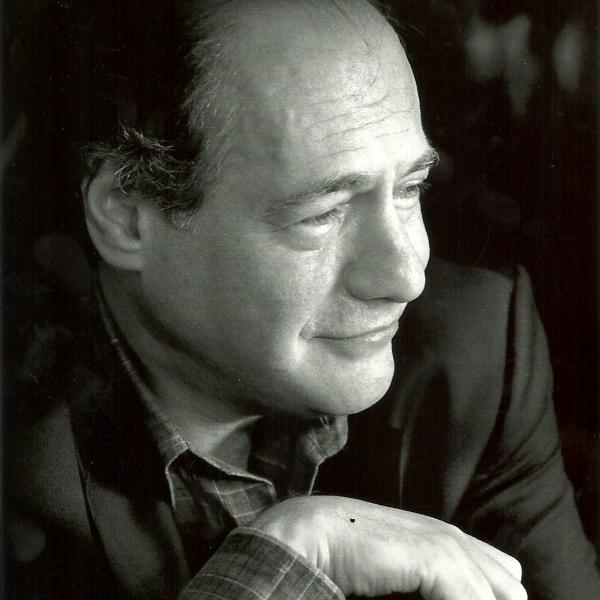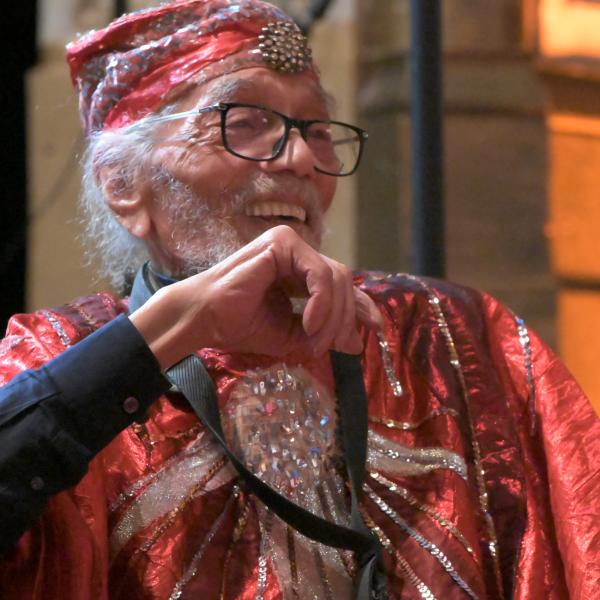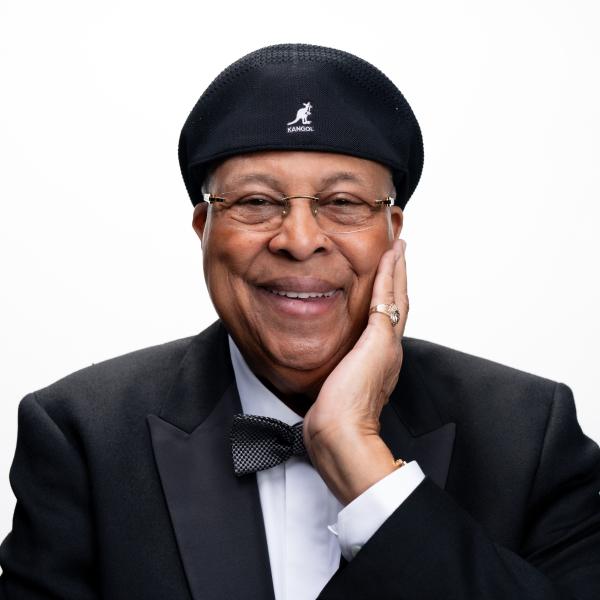NEA Jazz Masters: Tribute to Abdullah Ibrahim
“Eighty years ago in Cape Town, South Africa, my grandmother sent me to the local piano teacher for lessons. I humbly accept and dedicate this prestigious award to her and all those who assisted me on the way—mentors, companions, family, musicians, friends. On their behalf, my sincerest gratitude to the NEA.”
Abdullah Ibrahim combines the rhythmic influences of South Africa with the improvisation of jazz to create his spiritually enriching music, whether performing solo, with a trio, a full band, or an orchestra. This blend of the traditional and the modern is reflected in his distinctive style, harmonies, and musical vocabulary.
He was born in Cape Town, South Africa, as Adolph Johannes Brand and was widely known as Dollar Brand early in his career, before changing his name when he converted to Islam. His mother and one of his grandmothers were pianists and singers in the church, and their enthusiasm for music inspired him to take up piano lessons at age seven. At 15, Ibrahim began playing and recording professionally with Cape Town groups. In 1958, he formed the Dollar Brand Trio that played African-inflected bebop, and a year later performed with the short-lived septet the Jazz Epistles, including renowned trumpeter Hugh Masekela. The group recorded the first jazz album by South African musicians, Jazz Epistle Verse 1.
In 1962, Ibrahim left South Africa and settled in Zurich, Switzerland, where he came to Duke Ellington's attention. Their introduction not only led to Ellington producing an album featuring Ibrahim but also enabled him and his wife, vocalist Sathima Bea Benjamin, to move to the United States. Ibrahim soon was featured at prestigious venues such as Carnegie Hall and at the legendary Newport Jazz Festival. He also toured with the Elvin Jones Quartet for six months. While living in New York City, Ibrahim expanded the circle of his musical influences to include avant-garde American musicians such as Don Cherry, Ornette Coleman, John Coltrane, Pharoah Sanders, Archie Shepp, and Cecil Taylor.
In 1968, Ibrahim returned to Africa, first settling in Swaziland and later returning to Cape Town. He recorded Mannenberg – ‘Is Where It’s Happening’ in 1974, which soon became an unofficial national anthem for black South Africans. After the Soweto student uprising in 1976, he returned to New York City where he and his wife launched the Ekapa record label, for which he worked in a variety of genres, from opera to ballet to musicals. In 1983, Ibrahim formed Ekaya, an everchanging group of New York-based musicians with whom he has worked on and off for the past 35 years. Additionally, he has written and performed the soundtracks for two Claire Denis films: Chocolat (1988) and S’en fout la mort (No Fear, No Die) (1990), and for the Burkina Faso director Idrissa Ouédraogo’s film Tilaï (1990).
Ibrahim has returned to South Africa often since the fall of apartheid and performed at the 1994 presidential inauguration of Nelson Mandela. He received numerous awards, several honorary doctorates, and is the subject of two documentary films: A Brother with Perfect Timing directed by Chris Austin (1987) and A Struggle for Love, directed by Ciro Cappellari (2005). He continues to tour extensively worldwide with his ensembles, as a guest performer with classical orchestras, and as a solo artist.
Selected Discography
Duke Ellington Presents the Dollar Brand Trio, Warner Brothers, 1963
Banyana, Enja, 1976
Mantra Mode, Enja, 1991
Abdullah Ibrahim & WDR Big Band, Bombella, Sunnyside, 2008
The Song Is My Story, Sunnyside, 2014




